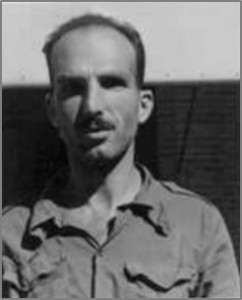Democracy in the Regiment de Tren? – by Don MacLeod
Editor’s note: At the initiative of ALBA board member Chris Brooks, who maintains the online biographical database of US volunteers in Spain, the ALBA blog will be regularly posting interesting articles from historical issues of The Volunteer, annotated by Chris. As momentous electoral changes crop up across the globe today, we post Don MacLeod‘s brief article detailing a transfer of power in the Regiment de Tren.
Democracy in the Regiment de Tren?
Don MacLeod
[Originally published in The Volunteer, Volume 4, Number 1, 1982]
About a month before the Brunete offensive, tensions arose between the men and officers of the squadron, which culminated in a political meeting. After all beefs, justified and otherwise, were expressed, a motion was made and carried, to remove all present officers and elect all new ones!
The deposed officers were much upset and of course they raised the interesting question of whether they could be so arbitrarily fired. Somewhere they had heard that the democratic process was suspended in time of war.
The Estado Mayor of the 5th Army Corps must have been astonished to learn that their transportation division had just thrown out their officers and elected all new ones. No word of challenge came from any source on high and so the will of the squadron, democratically expressed became a fact.
Looking back after so many years, I cannot say whether the newly elected officers proved to be better than the old one would have been, because the old officers turned out to be pretty good guys too.
Probably Quentin Durward Clark would have inevitably risen to leadership whether elected that night of the meeting or not, because he was a natural leader. I can say with sincerity that there is no man of the squadron alive today who would not be overjoyed to know what happened to that wonderful guy. He survived the war, but disappeared afterwards.
I think our guys resented some of the officers who were appointed in the states. A young leader of a college peace strike, for example, could emerge in Spain as a 1st lieutenant. But this was indeed a dubious credential for a military leadership, even perhaps, a negative one, and it is understandable that the ordinary soldado would feel uncomfortable with such a leader.
Cracker Barrel (letters to the Editor of The Volunteer)
[The Volunteer, Volume 4, number 2, 1982]
Dear Ben,
. . .
Thoroughly enjoyed reading DonMcLeod’s account of the Regiment de Tren inasmuch as I was one of the “lesser lights” disposed of by having to surrender one of the few automatics issued. Eventually I ended up with the Battalion which was OK with me.
. . .
Sauld













